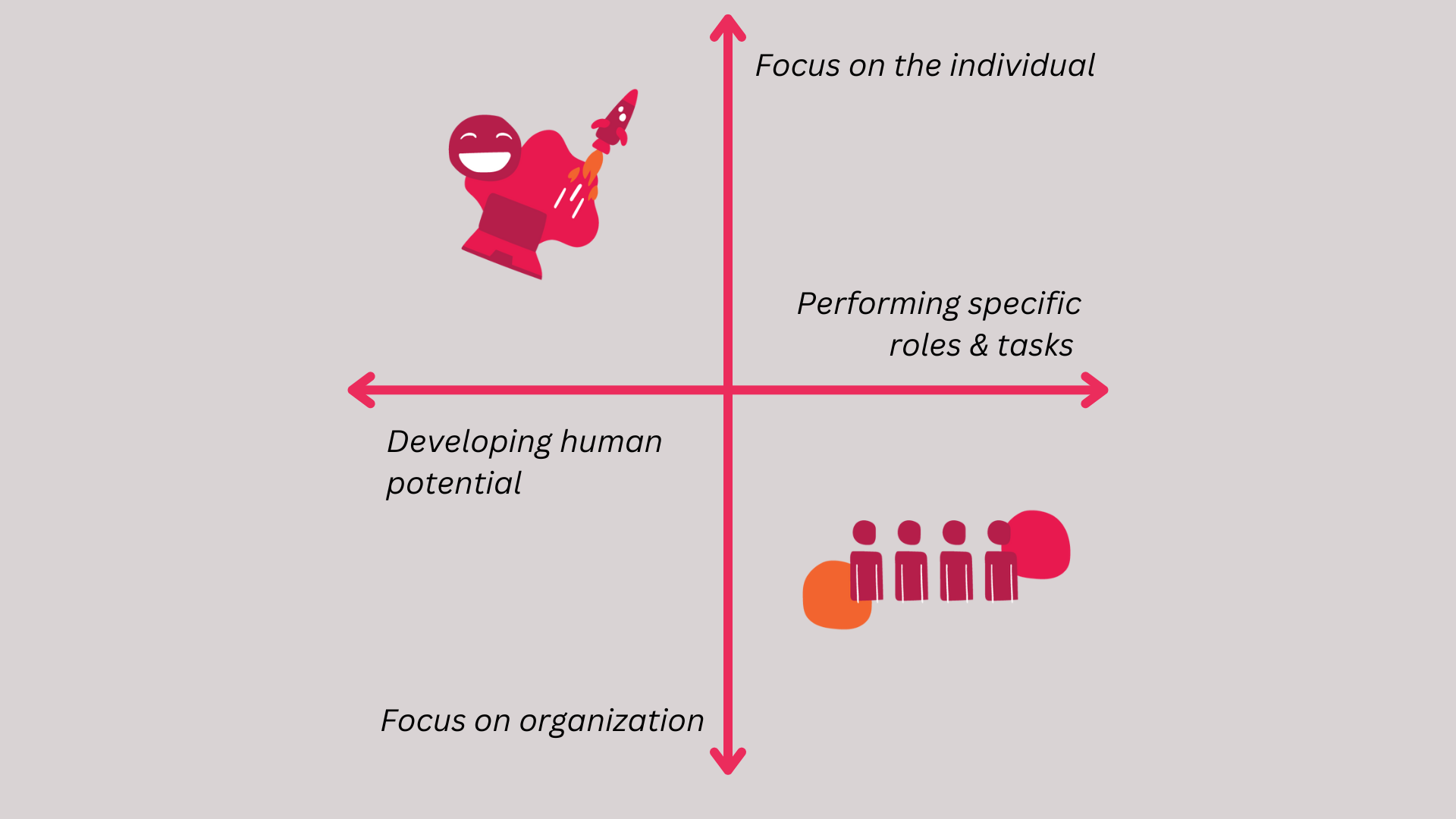
Organizational learning: A definition, the significance, and our approach
Organizational learning refers to the process through which an organization acquires, processes, stores, and applies knowledge to improve its performance and adapt to changing environments. In this blog post, we will explore the key concepts of organizational learning and how they are implemented at WITSIDE.
Organizational learning is like turning a large ocean liner. It is slow and takes a great deal of effort, but once the turn is made, the ocean liner and the organization can stay the course.
(Sessa & London, 2015)
Understanding Organizational Learning
Organizational Learning is the collective acquisition of knowledge, skills and insights of humans that contribute to the organization’s effectiveness and “survival”. It aims to increase the company’s efficiency and adapt to an ever-changing environment.
Building an Organizational Learning Strategy
According to McKinsey, only 8% of the executives see clear results during their learning efforts. A good organizational learning strategy is crucial and is strongly related to the company’s overall strategic goals.
Organizational learning enables employees to share knowledge among colleagues, especially in remote working environments (). It can enable companies to:
- Onboard new employees
- Continuously increase innovations
- Improve operations
- Increase productivity and profits
- Lower turnover rates
- Increase job satisfaction
- Enhance adaptability throughout the organization
There are 6 steps, along with examples, to create an effective organizational learning strategy based on AIHR:
- Align your organizational learning strategy with your business strategy: For example, if you want to get new customers from new industries, having your team become literate in such industry (e.g. energy data, financial data) will help them being more confident to provide efficient solutions.
- Integrate organizational learning into your corporate culture: For example, a company can define learning as a clearly defined core of value or a performance indicator for the team.
- Facilitate experimenting: For example, a company can test a new training for a tool that they are experts internally. In this way they can test its efficiency and gather feedback for an improved version of it that can be offered to clients.
- Work on your knowledge management: For example, a company can implement knowledge retention and sharing through videos, infographics, documentation, recorded-sessions, CRM Systems or even have a dedicated team whose role is to facilitate learning.
- Promote collaboration: People need to learn from one another continuously. This can be done through cross-team weekly meetings, brainstorming sessions, monthly live workshops, and more.
- Measure the progress: For example, a company can have a quarter meeting where each team will present a skill that they are experts at or a work they’ve done recently to a client.
Implementing Organizational Learning: WITSIDE’s Case Study
Let’s take a closer look at how WITSIDE integrated organisational learning into its operations:
- Training Budget and Dedicated Trainer: The company allocates an annual training budget per person and has a dedicated trainer for internal and client training sessions, emphasizing the importance of continuous learning and skills development
- Internal Training and Knowledge Sharing: Internal training programs tailored to departmental needs, coupled with rewards for certifications and knowledge sharing, foster a culture of learning and collaboration among employees
- .Onboarding Experience and External Partnerships: The onboarding experience includes department-specific training, and the company collaborates with external partners for soft and hard skill training, demonstrating a commitment to comprehensive learning and development.
- Scholarship and Expert Programs: Offering a scholarship for Master’s degree studies and implementing expert and apprentice programs for knowledge sharing in specialized areas further solidify the company's dedication to continuous learning and skill enhancement.
Conclusion
In our humble opinion, the times where learning something new wasn’t even an option for employees during their working hours, are a long time gone. Organizational learning fosters a culture of continuous improvement, improves employee’s satisfaction with lower turnover rates, enhances company’s services achieving its strategic goals and finally, it helps people to lead a successful career which by the end of the day it’s a win-win situation of both companies and employees.
Consider implementing a holistic organization learning strategy for your company today!
Alexandra Athanasakou
Educational Manager @WITSIDE


